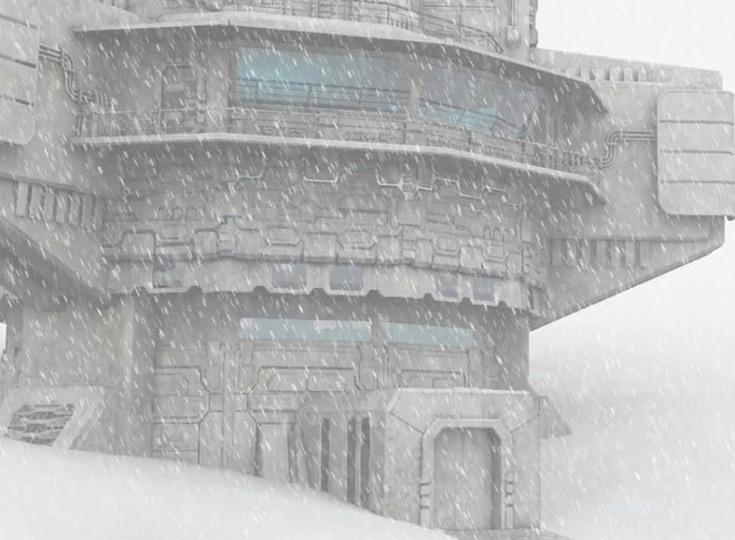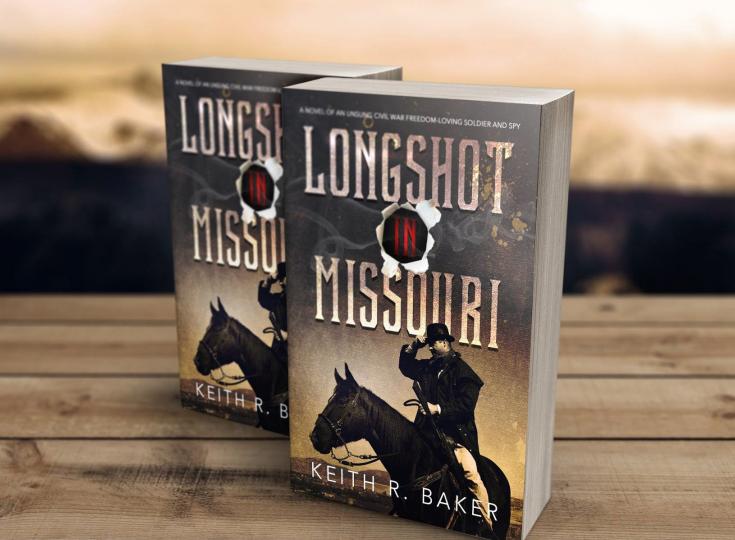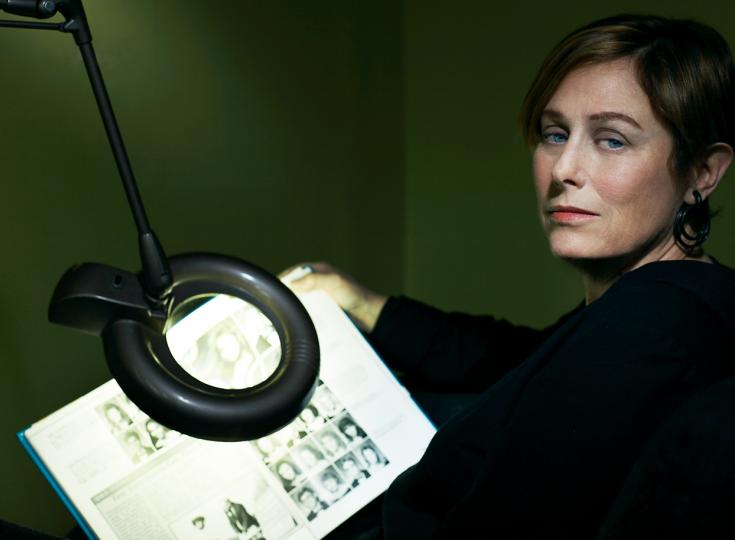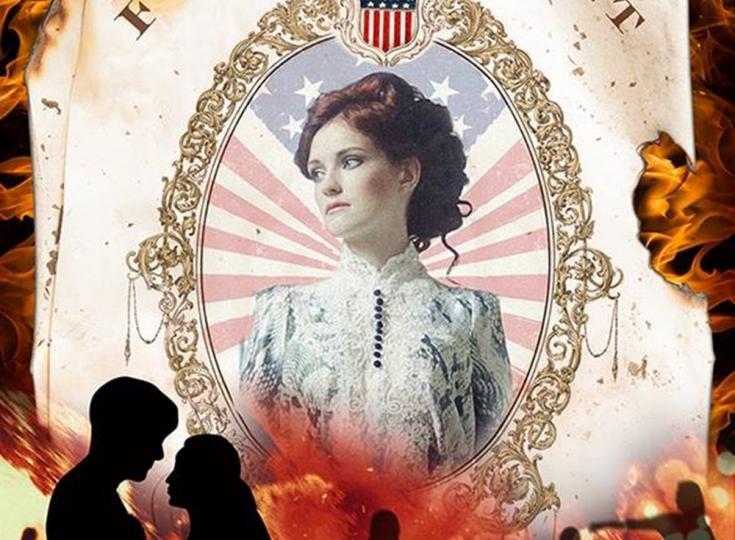Susan May - Writing Thrillers by The Seat of Her Pants
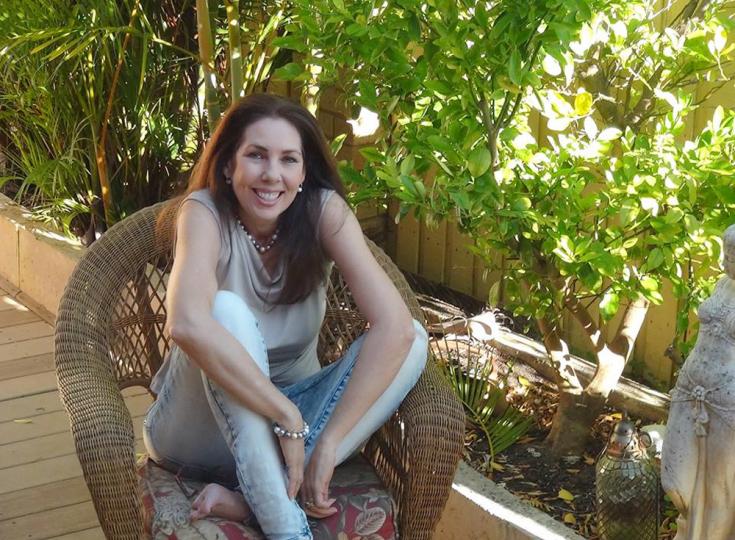
Susan May has known she wanted to be an author since she was only four years old. Life got in the way, but now she is finally living the dream and writing full-time... that is between being a mom, a wife, a movie critic, a guest speaker on a weekly radio show and running her own podcast. In today's interview, May talks about her collection of short stories, Behind Dark Doors, reveals how she motivates herself to write and how she has no idea where her story will travel once she starts writing.
Please give us a short introduction to Behind Dark Doors
Behind Dark Doors (the complete collection) is eighteen suspenseful short stories of horror, supernatural, and mystery. These tales will delight fans of Twilight Zone and any lovers of genius twists you will not see coming. Readers are loving the originality of the collection and many say they haven’t read short stories this entertaining in years.
When did you decide to become an author? And was there ever a defining moment when you suddenly realized: "Now I'm an author" as in - this is now my career?
I was four when I decided I would be a writer, packed a bag, and marched down the road looking for a school. For forty-six years, though, I suffered from life-gets-in-the-way-osis. Setting a goal to write just one page a day cured me in 2010. This discipline grew into an addictive habit that has since born several novels, and dozens of short stories and novellas, many of which are published award-winners in Australia, the U.S.A and the U.K.
About ten months ago, my latest book Deadly Messengers took off and its now selling thousands of copies a month, occasionally more than 10,000. Now I receive wonderful emails from readers around the world asking for more books. So I can now say I earn a good living from writing. However, I’ve spent the past six years writing more than a million words and, somewhere, along the way, the coat of a writer settled snugly on my shoulders. I know for the rest of my life I will wear that coat because I love writing and entertaining readers with a passion.
What inspired you to write a collection of short stories?
When I first recommenced writing seriously in 2010, I thought I would practice by writing for short story competitions. That way I would be forced to write to a deadline, would have to write in genres I’d never before attempted, and I would be measured against other writers. After a few competitions I started being short-listed and placing. Sometimes, I won. It was a great boost for my ego, and I knew I was on the right path. So these short stories are a collection of all these stories I’ve written over the past six years. I’ve got more, but I keep getting dragged into writing novels, so I haven’t had time to polish and publish them. I will eventually, though, in the next twelve months.
Sometimes, too, short stories are a great way to test the feel of a plot. I tried this with Where We Once Were (included in the collection) and asked readers if they would like to read a novel of it. I’ve had so many readers write begging for the novel, I will begin it later in 2016.

View from my office. I know I am lucky
I think the reason readers are loving the Behind Dark Doors collection so much is because they hark back to the days when short stories and comics had twists and finales to their plots. I read so many stories these days that just don’t have an ending. The art of writing a short story seems to have faded in favor of novels. But short stories are such a great way to pass that bus or train journey—a snatch of a tale in ten minutes. Stephen King, Jeffrey Archer, Edgar Allen Poe, O’Henry are my inspirations for short stories. I just read and loved them all my life. So I, also, write the short stories for me, because I can’t find short stories to read myself anymore, except when King puts out a new collection.
How, would you say, is writing a short story different from doing a novel? Which do you enjoy writing most?
I love both. Short stories gave me the skill to write novels. In fact, my first novel Back Again sprung from the short story (also, included in the collection). My editor loved it and suggested I turn it into a novel. It seemed a big task, and I told myself I would give it thirty days. If I couldn’t get a first draft done by then, I’d drop it. I finished the draft in twenty-seven days. That novel has, also, been very popular. It taught me how to write diligently and get the job done. It’s not so hard to write a novel if you set yourself a word count every day.
How do you manage to juggle life and its responsibilities while finding time to write?
I’m, also, a professional film critic with a guest spot on radio every week. Plus, I have two teenage boys and a husband I adore. So I just juggle everything, but my family comes first. However, writing is my job, so I have the time when the kids go to school until they come home. I try and get a little writing in on the weekends, too. I’ve taught myself to write whenever wherever. If I have five minutes waiting for the kids at school pickup out comes my laptop.
However, since my books have taken off, I spend a fair bit of time on paperwork and emails and then there is my film reviewing. I see about 160 plus films a year and write reviews for every one of them. (My podcast is here taken from the radio show: http://filmandbookstuff.podbean.com/) Occasionally it becomes a little overwhelming, but I just have to take a walk or remind myself I am absolutely living the dream and nobody is going to feel sorry for me.

What is it about mysteries and thrillers that fascinates you?
I grew up on a diet of reading Edgar Allen Poe, Jules Verne, H.G. Wells, Alfred Hitchcock presents, Tales From The Crypt comics and watching all those great TV shows like Twilight Zone and Outer Limits. I read The Exorcist when I was thirteen, and then discovered all the great science fiction writers like John Wyndham with Day of the Triffids and Arthur C. Clarke. Then came Stephen King and Carrie, and I fell in love completely with the dark thriller genre. I don’t know why I hear or see something and suddenly realize there’s a great thriller story to be told. Romance writers will see a love story and I will see terror and mayhem. It’s the idea of pitting a poor character against the terrible unknown that just excites me to write about it. However, I do like to read across many genres, and like all good authors I read from the classics to even the occasional romance. My favorite book is Rebecca by Daphne du Maurier and that’s really more a mystery, but oh, so clever.
If you could have a drink with any author (living or dead), who would it be and what would you drink?
I’d love to talk to H.G. Wells. That man is the father of science fiction. I’ve read his books so many times. Of course, I’d have whatever he’s having, which I imagine would be a sherry, which was popular in his day at the beginning of the 20th century.
Where do you find your inspiration? Are any of your stories ever based on real events?
Many ideas flutter into my mind almost every day. Once you take writing seriously, your imagination opens up to all the stories around you. Most of my stories are based on partial real events. Something I hear or read will set me off. In every novel and every short story, I always write a From The Imagination Vault after the story to share with the reader what inspired the story and little facts about it. So many reviewers write that they enjoy these little insights as much as the story. I love allowing readers behind the curtain of the story.
Many of your stories contain exciting twists. Do you plan them out before you start writing, or do they sometimes just "happen"?
I am what is called a pantser. I write by the seat of my pants. I don’t know anything about the story except maybe the opening scene or an idea. Somehow, and I can never explain how, I always work out the twist. It’s absolutely terrifying, because I never know what will happen. At the same time, it makes the story more organic and interesting. If I can thrill and surprise myself with the twists, then I know I will keep readers happy. I think by allowing the story or the novel to go where it seems most natural and follow the characters, the storyline feels more real. I don’t think I could ever plan the end of the novel. It wouldn’t be as exciting for me or probably the reader.
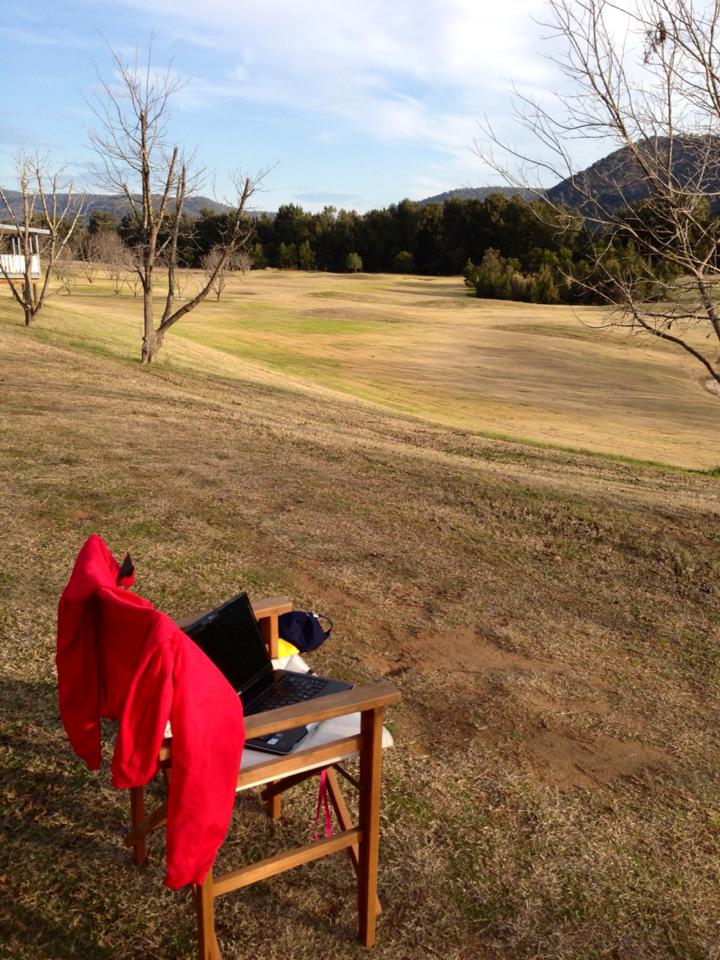
Scenic Route was one of the shorts that was written here while on vacation
Is there anything you're too scared to write about?
Quite a few readers said they found my last novel Deadly Messengers quite visceral. It’s about several mass killings and I take readers right into the minds of the killers. Some said they had to skip passages because it felt too real. I thought that was the worst thing you could write about, but I also thought the scenes weren’t overly gory. Stephen King writes worse. Then recently I read a horror novel called Hex by Thomas Olde Heuvelt and, in it, he graphically wrote about suicides. I almost couldn’t finish the book it was so disturbing to me. At the time I was writing my soon-to-be-released book in September 2016 The Troubles Keeper and I’d drafted some quite violent scenes. I immediately tamed them a touch, because I realized how upsetting certain violence can be. I suddenly understood what those readers had meant by the visceral experience of Deadly Messengers. So I definitely will never write about suicide. It’s such a terrible thing for a human being to take their own life, I don’t want to go there in my head.
To what degree do you believe authorial intent determines how a work should be interpreted?
I tell stories, and people will interpret them based on their own experience. Each reading experience is different for each reader. That’s why I don’t get too upset with negative reviews. Creative endeavors are all so subjective. You should hear film critics discussing films after a preview. We don’t always agree, because we are looking for different things from the viewing and reading experience. I’m very commercial in my intent. I just want readers to enjoy a great ride. If they see something deeper in the themes, great. Sometimes, they see more than I’ve written in there: also, great. Sometimes, less. They are just entertainment morsels, and I know I don’t write literature. So I don’t take any of this seriously except putting out the best entertainment I can.
What is your all-time favorite movie and why?
Now you are asking that question of someone who has watched thousands of films in their lifetime. People often say to me: “Have you seen . . .?” I always reply, “Now that’s a silly question, of course I have!” Lol. However, my favorite film since I saw it when I was about twenty-five, catching it late one Friday night, is “It’s A Wonderful Life” starring Jimmy Steward and Donna Reed. I love the idea that George Bailey helped people without realizing it. It changed my thoughts on life. I’ve seen that film about fifteen times, most recently a year ago on screen at a film festival. I even named my children after the characters. My eldest is Bailey after George Bailey and my second son is Harry after George Bailey’s kid brother.
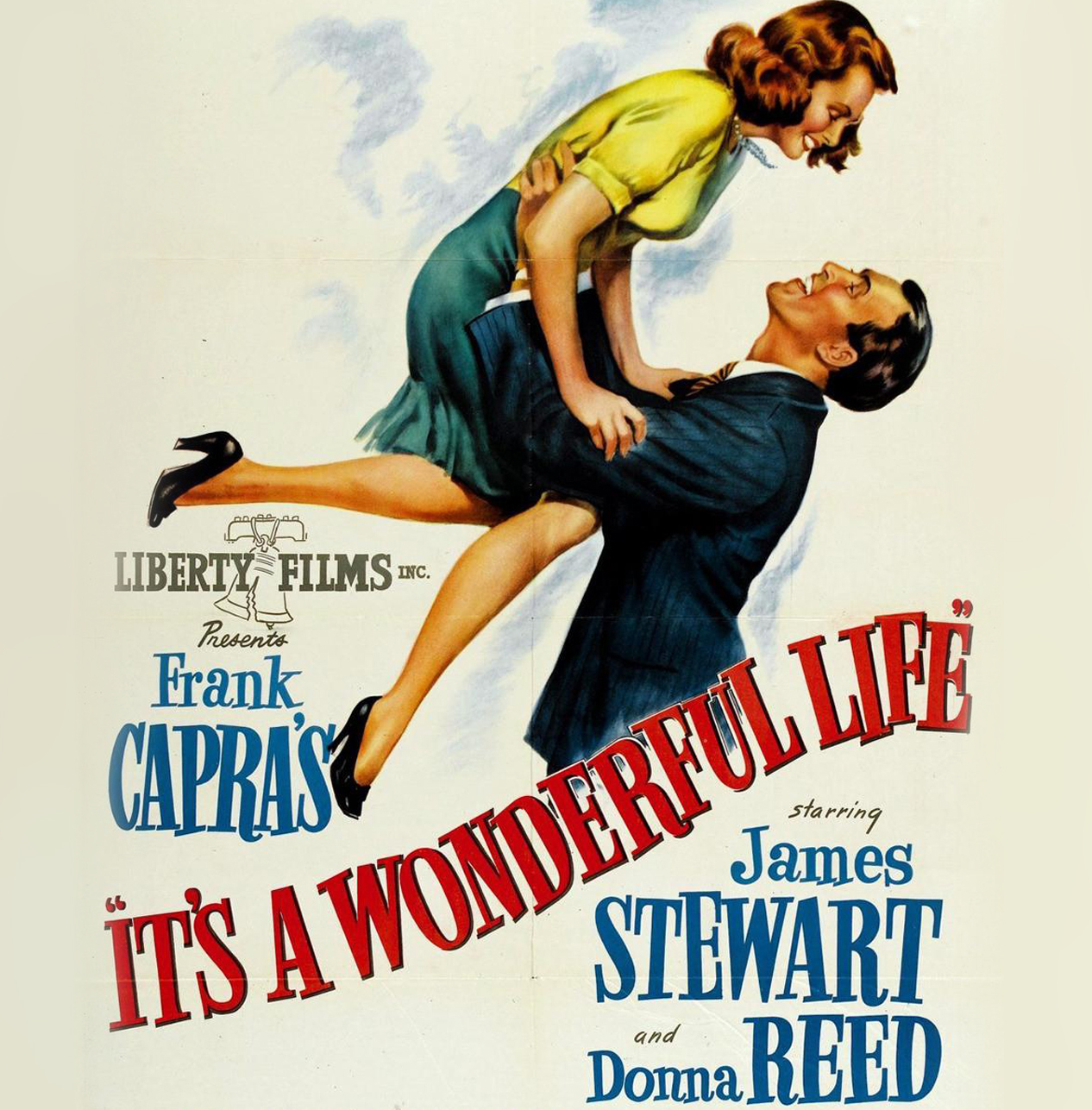
What are you working on right now?
I’m just running through the edits back from my editor on The Troubles Keeper. Amiable bus driver Rory Fine is born with a special gift. He can drag troubles from others’ souls with a mere touch. On a rain-swept night, he challenges his unusually glum passengers to leave their worrisome emotions in his palm as they disembark. Instead of the usual troubles energy, though, he pulls in something dark, brooding and evil—something sentient. Someone on the bus hides a deadly secret that will put the girl he loves-from-afar in terrible danger. The Troubles Keeper is a non-stop supernatural thrill ride with characters I’m sure readers will come to love. That should be out in September some time. If any readers are interested, by joining my club they will have access to The Troubles Keeper at a discounted price for the first few days. I sometimes give away free books to my members, too. They can join here: http://www.susanmaywriter.com.pagedemo.co/
Where can our readers discover more of your work or interact with you?
I love hearing from readers and I always reply to every one of my messages. You can discover more about me and my books and read some of my film reviews at www.susanmaywriter.com or hop over to my Amazon page: Susan May's Amazon Page. I’m also on Facebook at https://www.facebook.com/susanmaywriter/
Thanks to Many Books for having me visit and Naomi for such interesting questions. I’ve really enjoyed answering them.
